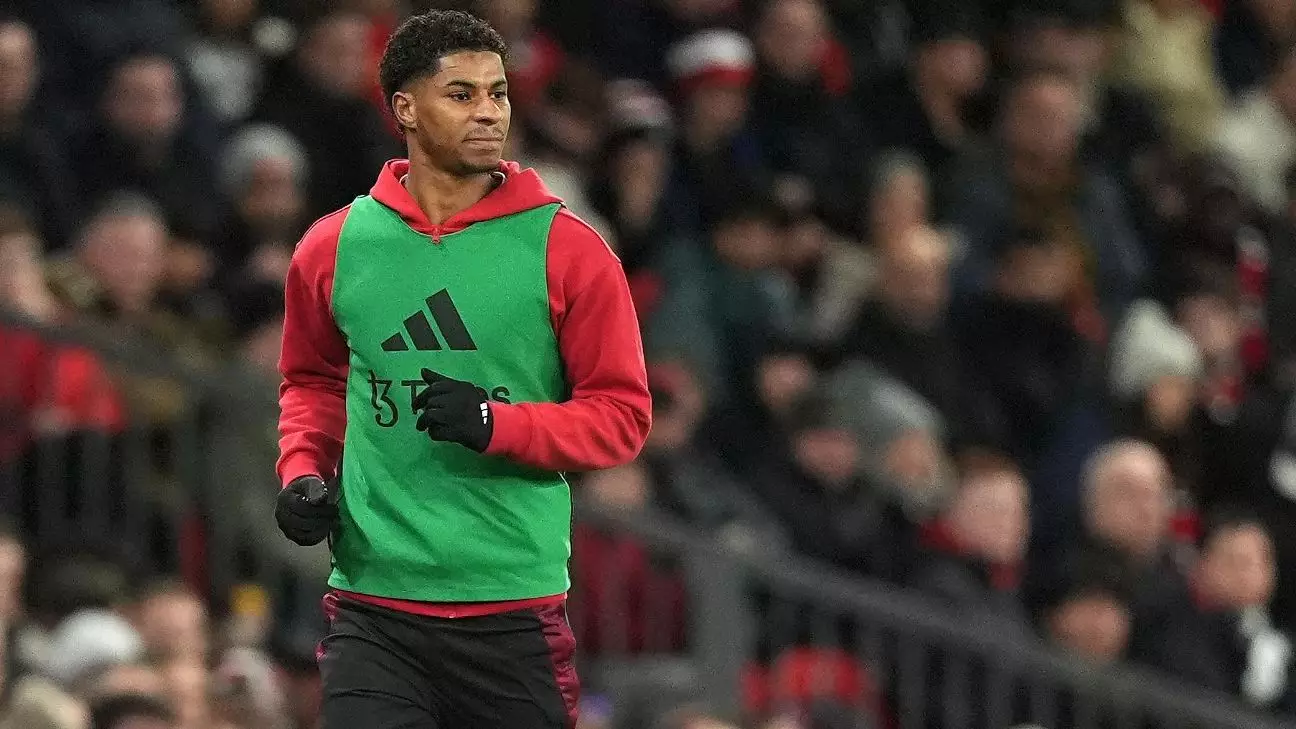In a surprising turn of events, Ruben Amorim has publicly addressed the reasons behind Marcus Rashford’s departure from Manchester United, bringing to light the complexities of player-coach dynamics. The astute acknowledgment that Rashford, a player with immense talent and potential, could not reconcile his style of play with Amorim’s vision reveals an ongoing struggle within the club’s management. As players frequently oscillate between success and stagnation under varying coaching philosophies, Rashford’s exit underscores the realities of performance in professional football.
Rashford’s transfer to Aston Villa on loan, having lost his standing at United under Amorim’s regime, highlights the often tumultuous relationship between an athlete and coaching methods. Amorim candidly confessed that there was a disconnect in how he envisioned the team’s strategy, with Rashford not aligning with those expectations. He expressed regret over the situation—“I couldn’t put Marcus to see the way you’re supposed to play football”—implying a deep dissatisfaction that led to the necessity of breaking an established bond.
For Amorim, the decision to part with Rashford was not taken lightly. Despite being a coach armed with undeniable tactical acumen, the obstacles in connecting with certain players are a reality that every manager faces. His reflections hint at the broader theme in football where aptitude can often be irrelevant without the right mindset and adaptability. It prompts the question: How pivotal is a coach’s style of play in influencing player retention and success?
Amorim acknowledged that not every player can seamlessly adapt to a coach’s philosophy. He stated, “The case was some of the guys don’t adapt the way I see football,” capturing a universal truth in coaching. Every manager seeks a squad that embodies their ethos, yet achieving this equilibrium can lead to difficult decisions that ultimately reshape team dynamics.
Despite Rashford’s trajectory at United, where he had previously flourished, his subsequent alignment with Aston Villa under Unai Emery offers a fresh start. Amorim expressed nothing but hope for both Rashford and Emery, indicating a willingness to overlook past conflicts for the sake of the player’s development. This decision underscores the importance of finding a conducive environment where talent can thrive.
Highlighting the deeply personal nature of coaching, Amorim understood that each player’s experience is uniquely different. He shared sentiments about coaching interplay—“It’s quite normal; it happened with a lot of coaches”—situating his decision within the greater narrative of management challenges across all levels of football.
The Upcoming Challenges
As Amorim prepares his squad for an upcoming FA Cup tie against Leicester City, he reflects on the importance of establishing a cohesive unit built on mutual understanding and shared goals. The match not only serves as a battleground for tactical experimentation but also as an opportunity for Amorim to further implement his systems without the specter of Rashford’s absence looming over the squad.
Going head-to-head with Ruud van Nistelrooy, who was briefly at the helm of United prior to Amorim’s arrival, will be emblematic of a new era for United. Amorim’s commitment to maintaining his structure, while respectfully acknowledging Van Nistelrooy’s legacy, consolidates his authoritative stance at the club. By choosing to forge his path without integrating former stars into his inner circle, Amorim emphasizes the importance of team cohesion over nostalgia.
Ultimately, Rashford’s departure is a compelling case study in football management, shedding light on the delicate interplay between player capabilities and coaching philosophies. While Amorim’s strategy may currently be met with skepticism, the need for a redefinition of roles within Old Trafford could lead to transformative outcomes. As players adapt to new methodologies and the coach continues to refine his vision, the hope remains that both parties find success in their respective journeys. In the ever-evolving landscape of football, the saga of Rashford and Amorim serves as yet another reminder of the game’s unpredictable nature.

